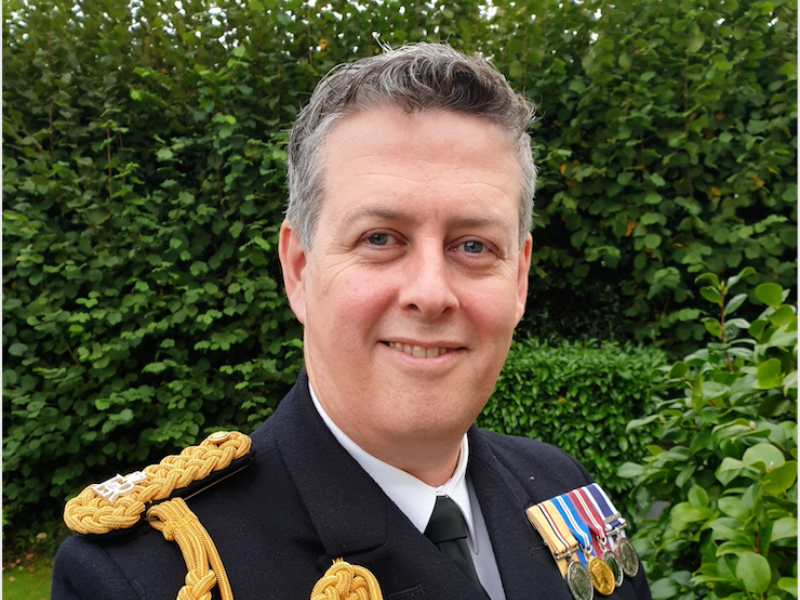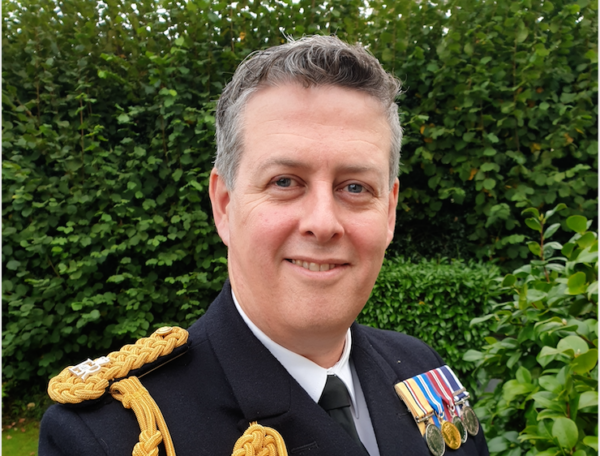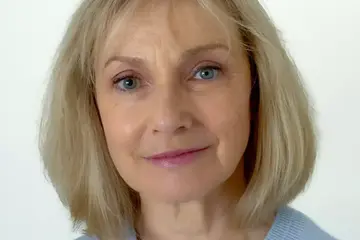
Jim’s story: the male ally and the coaching mindset
Rear Admiral Jim Macleod CB
I grew up in the north of England. When I joined the Royal Navy in the late 1980s, I didn’t think much of it when I was asked to take elocution lessons. I told someone this recently and they were amazed that this had happened.
Today, asking someone to change something so fundamental to their sense of self just would not happen. Making someone feel their uniqueness is an impediment is rightly becoming something that we just don’t, or shouldn’t do.
Thinking about my experiences, it really was only when I became a more senior leader and thought more deeply about inclusivity that it occurred to me that one of the reasons I’ve had such a good career is because I’ve resisted fitting in.
Time and again, studies show that successful organisations are inclusive ones.
The look of disbelief the elocution story was met with is, to me, heartening. It’s proof that organisations evolve and environments can become more inclusive with time, energy, and, in my experience, a coaching mindset.
I’d like to share how I've used it to support gender diversity.
Creating the space for others to share their experiences without judgement.
A female colleague once pointed out how much language and signage in the Military was still gendered. She explained it in a way I had never thought of before, and I quickly shifted from “here we go again” to “wow it must be weird to feel that you don’t belong”. As the conversation continued, she began to describe her experience as a woman in a male-centred environment.
I knew I could never experience what she’d experienced or feel what she had felt, but that didn’t mean I couldn’t be an effective leader and help to change things for her and others. One of the things she taught me was by giving her the space to speak and making the effort to listen to her without judgement, I was employing an essential coaching skill. This meant I could better identify where I could help improve the situation as a leader and I could resist telling her what my solution to her problem was.
Whilst I was in the position of having access to key decision makers, budgets and credibility I didn’t know what needed to be done to make things better, but she and others with a different experience did. This was a powerful combination and together we formed a working group that looked at what needed changing, and more importantly then made real changes happen and stick in the organisation.
Encouraging curiosity
I can find myself as a leader filling a gap because I can. I fall for the trap and think it’s my job, and that my credibility is on the line or it’s quicker if I just carry out a task myself, rather than relying on someone else to do it - for whatever reason I would contend that my hard learnt experience is that this causes more problems than it solves.
Reflecting on this I can see that a coaching mindset in leadership helps avoid these problems. It creates the conditions in which people feel empowered to move up and fill that role or take on that task safe in the knowledge that I am there if they really need me. In doing so they learn, develop feel motivated and more engaged, deliver more solutions and are happier and I have more time to do what I should be doing… What is not to like?
A great route into this is by asking questions and encouraging others to be curious too: the why, what, how questions. You can demonstrate a lot of trust in someone by asking them how they would approach a situation and then running with their answer, even if it’s not exactly what you would do.
You can help people to find their voice, in the gender work we did I found that to be particularly true for women who don’t always push to be the loudest voice in the room, and this in turn taught me a huge amount. I strongly believe the emphasis should really be on the quality of the thinking, and the quality of the conversation, not the force with which an opinion is delivered. A leader in any group can create the space for everyone to have a voice, indeed I would argue that is a core part of a leader’s role.
Holding the space for the conversation is really powerful, it generates a great deal of energy and solutions and ideas that would never have happened in a closed space.

Being consistent and clear in who I am
I think that a coaching leadership style requires you to be very open with people and to be authentic and vulnerable.
To be an effective leader who brings about change, I think it’s vital.
When it came to improving gender diversity, I wanted to make it clear that my intentions were honest and that I wasn’t taking this on to advance my career. I was not afraid of telling people that talking on gender issues always makes me feel vulnerable, I guess because I am talking of things that I have not experienced, things that I am far from an expert on. But, neither was I afraid of apologising when I got it wrong, indeed I think because I was prepared to try and fail made it more powerful. When asked why I did this on top of a very busy job already I always reply I did the work because it matters to me , because it matters to Defence and because I care about people reaching their full potential.
Knowing yourself is essential in both effective leadership and coaching, and interestingly coaching can help you to better know yourself and how you can use yourself as a tool.
Very early on when I’m working in a team, I like to establish in my head exactly what the three things are that I can do that no one else can. I encourage everyone to do this – then ask yourself how much time am I doing these things!
The two-deck bimble.
Any good ship’s Captain will talk about the importance of the two-deck bimble.
This is the walk a Captain undertakes on a ship with the sole purpose of speaking to individual members of the ship’s company (crew), to get to know everyone, their strengths, the role they’re fulfilling and to get a feel for morale and major issues.
The Captain will also use this as an opportunity to help clarify the Ship’s mission, or other important aspects of what is happening. A good captain isn’t directive on the wander (though they absolutely will be when people’s lives are at risk) and neither is a coach. It’s a reciprocal relationship, where the general goal is understood and where the art of conversation and questioning enables great things to happen.
Further reading:
You can also hear from Briony Hughes, Director of HR at News UK, who launched a major diversity and inclusion strategy in 2020. As someone who has coached and been coached, she knew that it could play an important role in the implementation and lasting success of the strategy. In this post, she shares how.
Learn more:
In order to make the most of the strengths of individual members in their teams, leaders are increasingly reaching for coaching skills to enhance, not just their own performance, but also those they work alongside. The Coaching Essentials for Leaders is an interactive webinar designed for those who are new to leading and coaching, and those who seek a refresher or a new approach to their usual leadership style.


